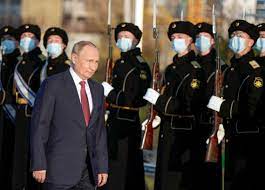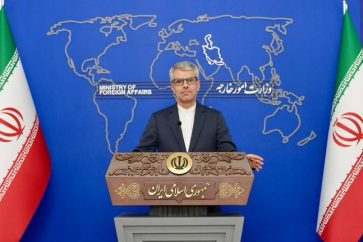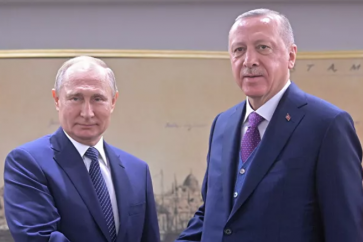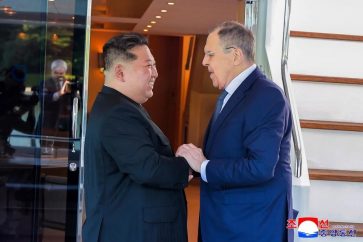Russia’s deputy UN ambassador has dismissed reports that Moscow plans to invade Ukraine, but warned against any provocations from the neighboring country that could trigger such an invasion.
Dmitry Polyansky’s remarks came as Bloomberg on Thursday cited sources as saying that the US had briefed European Union allies on its concerns over a potential Russian military invasion of Ukraine.
Asked by reporters at UN headquarters if Russia planned to invade Ukraine, Polyansky said, “Never planned, never did, and never going to do it unless we’re provoked by Ukraine, or by somebody else” and Russia’s national sovereignty is threatened.
“There are a lot of threats coming from Ukraine,” Polyansky added. He also referred to provocative actions by US warships in the Black Sea.
“And don’t forget that the American warships around the Black Sea acting very close. So, every day is a very difficult day to avoid direct clash in the Black Sea. We warned our American colleagues that this is a real provocation,” Polyansky told reporters.
Earlier this week, the Russian Defense Ministry said that the US navy’s guided missile destroyer Porter, tanker vessel John Lenthall, and command ship Mount Whitney were deployed to the Black Sea to take part in the drills that the US European Command is holding in the strategic region.
Referring to reports of alleged buildup of troops near Russia’s frontier with Ukraine, Polyansky stressed that “We have the right to concentrate our troops wherever we want.”
“This is not Ukrainian territory. This is Russian territory,” he said, adding “but if you read the threats that are being pronounced in Ukraine against Russia, against Russian territorial integrity, then you will understand that a certain precaution is a logical step in such a situation”.
Relations between Moscow and Kiev have been strained since the conflict erupted in Ukraine’s eastern Donbass region between Ukrainian government forces and ethnic Russians in 2014. The US, the European Union, and Ukraine claim that Russia has a hand in the conflict. Moscow strongly rejects the allegation.
Bombers deployed to Belarus for second day in row
Russia on Thursday sent two Russian Tu-160 nuclear-capable bombers on a training mission over Belarus in a show of support for its ally, which has been engaged in a border crisis with Poland.
The Belarusian Defense Ministry said the bombers practiced bombing runs at the Ruzany firing range, located in Belarus about 60 kilometers east of the border with Poland, and Belarusian fighter jets simulated an intercept.
The Russian military said the mission was intended to bolster the countries’ alliance, and that the patrol “wasn’t aimed against any third countries”.
The mission was the second of its kind in just two days. On Wednesday, Russia dispatched a pair of Russian Tu-22M3 long-range bombers to fly over Belarus.
The Russian Defense Ministry said that such Russian bomber flights will be carried out on a regular basis.
Polyansky told reporters that the deployment of the two strategic bombers to Belarus was “a response to a massive buildup on the Polish-Belarusian border”.
According to the Belarusian Defense Ministry, Poland on Thursday amassed an “unprecedented” military buildup on the border.
The ministry said that migration control did not warrant the deployment of 15,000 troops backed by tanks, air defense assets and other weapons.
“It looks more like forming a strike group of forces,” the ministry said.
Belarusian President Alexander Lukashenko on Thursday also called the Russian bomber flights a necessary response to the tensions on the border with Poland.
“Let them scream and squeak. Yes, those are nuclear-capable bombers, but we have no other choice,” he said.
EURussian President Vladimir Putin on Thursday stated that the European Union should start talking to Belarus if it wants to resolve the migrant crisis.
In a statement, the Kremlin said that Putin “spoke in favor of restoring contacts between EU states and Belarus in order to resolve this problem” during a phone call with German Chancellor Angela Merkel.
According to the Kremlin, the two sides agreed on “the importance of a rapid resolution” of the crisis “in accordance with international humanitarian standards”.
The phone call came a day after Merkel had urged Putin to exert “his influence” on Belarusian President Alexander Lukashenko to resolve the situation.
The European Union claims that Lukashenko has encouraged the migrant flow in retaliation for existing sanctions imposed by the bloc on Belarus, but Lukashenko has denied the allegations.
Source: Agencies




